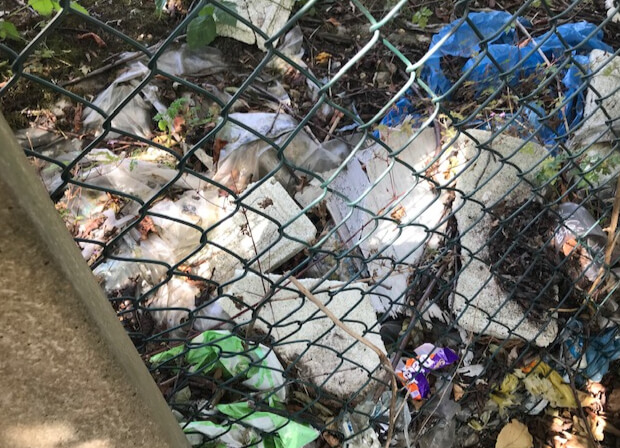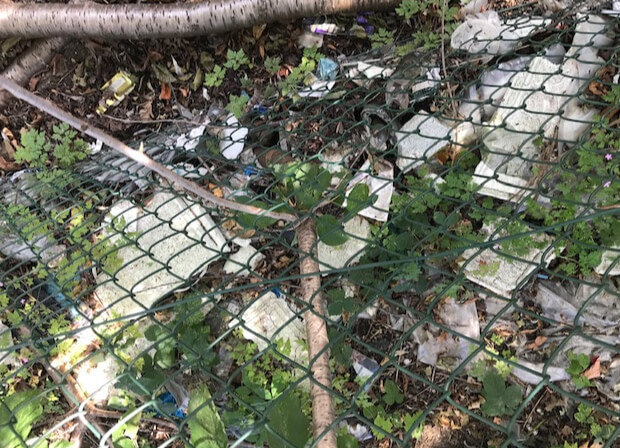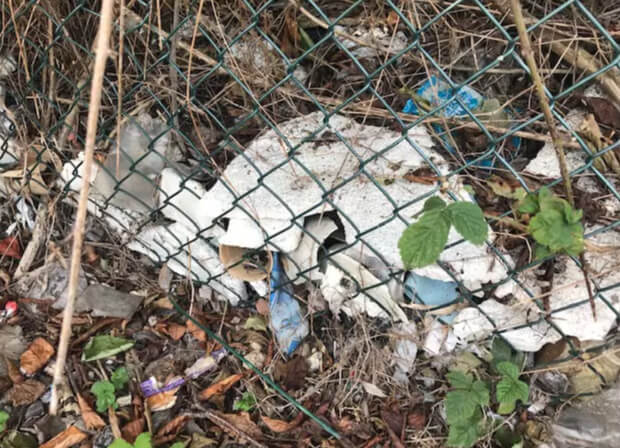However, Paul was shocked to see the amount of waste polystyrene fish boxes which were caught up and dumped amongst the fences.


The most shocking part of this discovery is the share amount, in such a small space, imagine if this was surrounding every business across the whole of the UK or even the world?
Why is so much polystyrene wasted?
Polystyrene is favoured in the seafood industry for its insulating and protective qualities. Unfortunately, due to the material’s bulkiness, it is becoming more financially expensive and environmentally challenging to send to landfill. Polystyrene takes up significant space in waste bins which means that bins become full too quickly and therefore require additional emptying, which is often either logistically or financially unfeasible. Being lightweight yet bulky, it occupies lots of precious landfill space and can be blown around and cause a nuisance in the surrounding areas – hence Tri-pack’s findings.
Furthermore, polystyrene is typically non-biodegradable, taking hundreds or perhaps thousands of years to decompose. When polystyrene breaks apart, the small polystyrene components can be eaten by animals which can cause choking or an intestinal blockage. Huge percentages of polystyrene end up in waterways, typically due to it’s intended use of fish boxes, they are usually situated on rivers or seas.
This pollution is not only a threat to our marine life but is also a potential health hazard for us humans. The plastic monomer used in manufacturing polystyrene has been classified as a possible human carcinogen. Styrene is derived from either petroleum or natural gas, both of which are non-renewable and are rapidly being depleted, creating environmental sustainability problems for polystyrene.
What Tri-pack are doing to help
Tri-pack care about the environment, from their manufacturing process to the materials they use. They also operate a completely clean office and help out with environmental protection and other sustainability initiatives. Noticing the amount of waste polystyrene in just a small space has prompted a new initiative. Tri-pack will be actively collecting up all of this waste from around the vicinity and properly disposing of it. Check back in the next few weeks to see the amount of rubbish collected and recycled or disposed of.
Tri-pack does not generate any of their own waste from either their packaging or manufacturing process as all of their products meet a complete circular economy. This means that the raw material which they manufacture from, can be used time and time again without any wastage and most importantly, without harmful techniques. So while they have none of their own waste to collect up, they are helping other businesses do so!
Find out more about Tri-pack’s environmentally friendly initiatives here.

